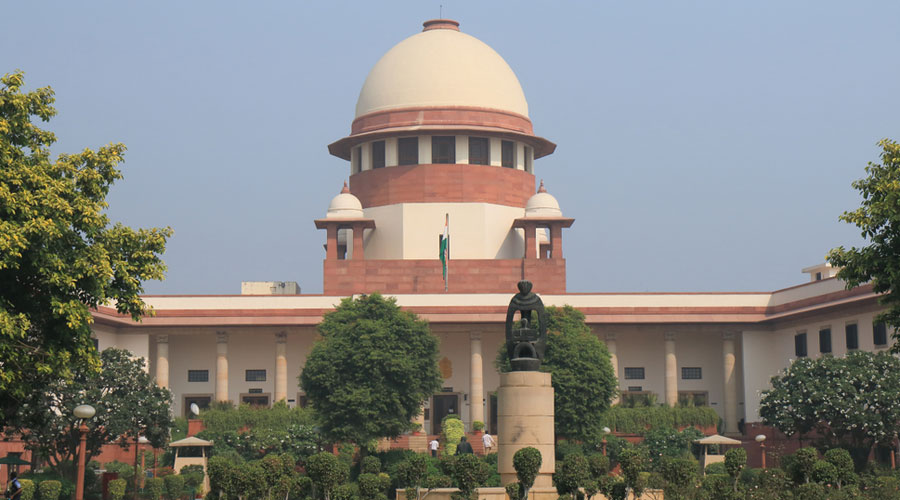The Supreme Court on Wednesday issued notices to the Uttar Pradesh and Uttarakhand governments on petitions challenging the constitutionality of legislation they had passed or promulgated criminalising interfaith marriages if conducted for the ostensible purpose of religious conversion.
The bench of Chief Justice S.A. Bobde and Justices A.S. Bopanna and V. Ramasubramanian, however, refused to stay the controversial laws without hearing the two states, which have four weeks to respond.
One of the petitioners, Vishal Thakre, had sought the stay. The other petitioner is Citizens for Justice and Peace, an NGO founded by Gujarat-based activist Teesta Setalvad.
The two BJP-ruled states have introduced the legislation as a shield against what their ruling party calls “love jihad” — Muslim men marrying Hindu girls with the alleged intention of converting and radicalising them.
Initially, the bench had asked advocate Pradeep Yadav, representing Thakre, to approach Allahabad High Court which is dealing with several petitions on the matter.
People cannot directly approach the apex court instead of moving the high court concerned, Justice Bobde said.
“We are not saying you have a bad case…. We are asking and saying that you go to the high court and then come here,” he said.
However, Yadav argued that since several other states like Madhya Pradesh and Haryana too proposed to bring in similar legislation, it would be appropriate for the top court to lay down the law on the subject. The bench then relented.
Thakre has alleged that “couples are being harassed and are being taken away from marriage venues”.
The two laws are the Uttar Pradesh Prohibition of Unlawful Conversion of Religion Ordinance 2020, promulgated in November end, and the Uttarakhand Freedom of Religion Act 2018.
On Wednesday, the Jamiat Ulama-i-Hind moved an intervention application in the Supreme Court through advocate Ejaz Maqbool, saying the two laws were being used to assail Muslims’ rights.
Muslim youths are “being targeted and demonised by using the impugned ordinance, which in itself is unconstitutional being violative of Articles 14 (equality before law), 21 (life and liberty) and 25 (religious freedom)”, the Jamiat said.
Among the points the Jamiat has raised are:
⚫ The ordinance violates Article 21 by trying to regulate what should be an individual’s personal choice — the freedom to decide what religion to adhere to.
⚫ The ordinance makes it a criminal offence to convert a person through “allurement”, defined “very broadly” as “any temptation in the form of: 1. Any gift, gratification, easy money or material benefit either in cash or kind; 2. Employment, free education in reputed school run by any religious body; or 3. Better lifestyle, divine displeasure or otherwise”.
“This means if a person belonging to one religion, say Islam, gifts a non-Muslim a book concerning the teachings of Islam and the said non-Muslim person who received the book after reading it decides to convert to Islam, the said conversion could be said to have taken place by ‘allurement’ since it occurred after a gift was given to the convert,” the application says.











